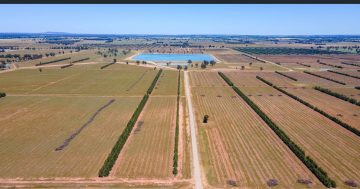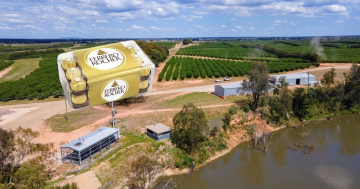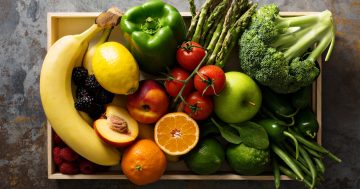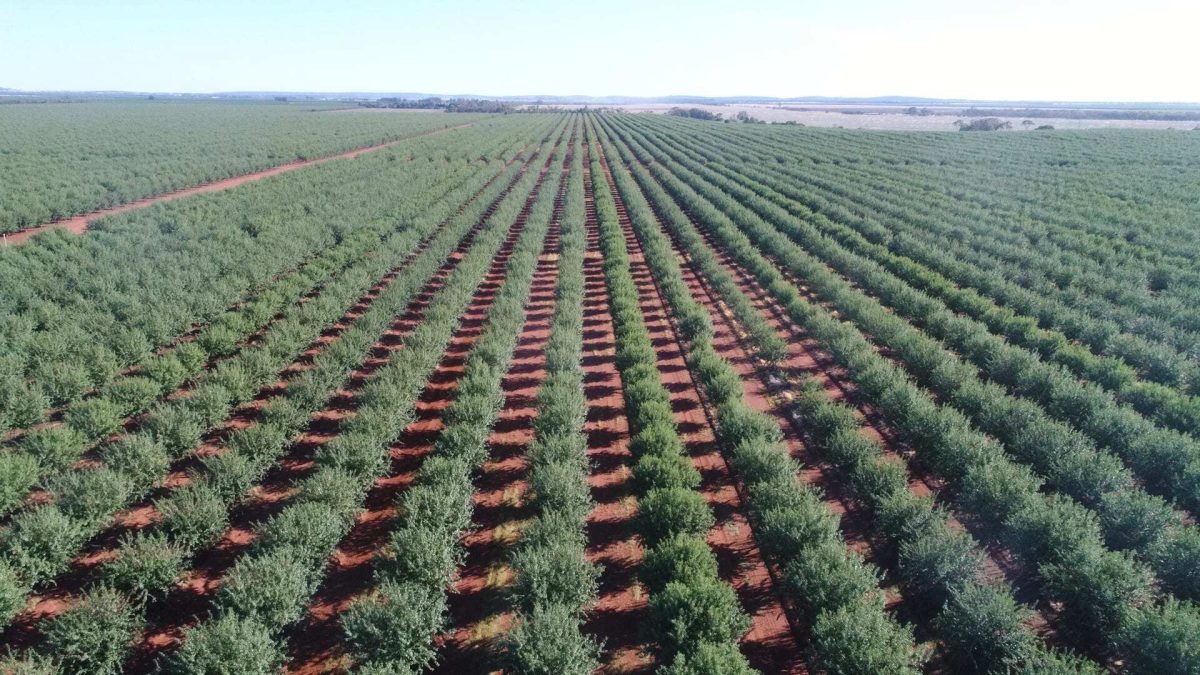
The Greenview farms at Tabbita. Photo: Commerical Real Estate.
Agricultural investment firm goFARM has acquired three large irrigation properties near Griffith, with plans to convert them into almond orchards.
The company says 24 full-time jobs will be created by their venture, though others have expressed concern about the increased prevalence of corporate-run water-intensive nut farms across the Riverina.
The Australian Financial Review reported goFarm purchased a 700-hectare Stephendale Vineyard at Yenda, the 585-hectare Greenview farms at Tabbita and another nearby property primarily for its water entitlements – investments worth a total of $120 million.
At Yenda, the vines are being removed to make way for almond orchards, while the Tabbita farm will also grow almonds.
In total, the acquisitions consist of 1758 hectares and 5000 megalitres of water entitlements.
GoFARM is a Melbourne-based agricultural investor backed by the Costa Group, Australia’s largest horticultural company. In 2019, goFARM purchased dairy farms in the Victorian Goulburn-Murray region to convert them into almond and citrus crops.
A spokeswoman for the investment firm told Region the Griffith area would benefit from its Riverina venture.
“Three local full-time jobs have already been created, with an expected total of 24 full-time roles to support the almond production system at maturity,” she said.
“Up to 40 casual jobs [are] to be created during peak times at orchard maturity.”
However, Mel Gray, a campaigner for environmental group the Nature Conservation Council, believes there’s a downside to such investment.
“This is the real risk to farming families, irrigation communities, supply chains, cost of living and food security,” she said.
“We must adjust to a future with less water, while securing our food chain. Expanding thirsty almond plantations grown for export isn’t the way.”
Nuts are a permanent crop, meaning they need a constant supply of irrigation water each year.
A 2019 American study revealed that almonds grown in California used on average 12 litres of water for each single almond.
“We need to get smarter; moving to plantations is dangerous. Profits and benefits are exported while all risk [is] borne locally,” Ms Gray said.
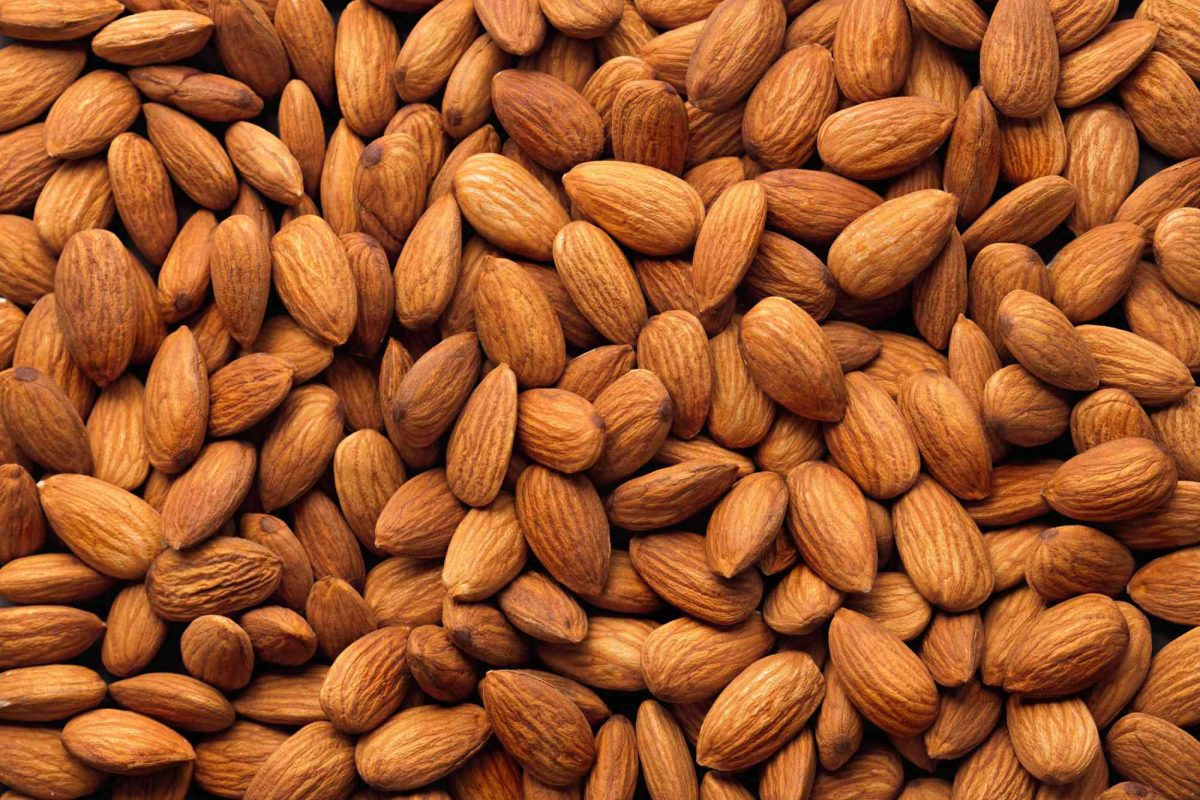
Almonds are considered a thirsty crop. Photo: Getty Images.
Over the past 20 years, several food staple producers have left the Riverina, often replaced by large corporations that tend to specialise in a narrower range of products such as nuts and cotton.
More recently, there have been signs that intense competition for scarce water entitlements is heating up.
In October, Italian multinational Ferrero Group abandoned its $70m hazelnut farm near Narrandera. The company is removing about a million hazelnut trees, while a number of local workers were left unemployed.
A spokeswoman for goFarms said there would be flow-on benefits from their local almond investment.
“The procurement of local goods and services includes machinery purchases from local dealerships and the current engagement of many local contractors for land transformation works,” she said.
Ms Gray, though, says the nut industry is not labour intensive and said she expected the impact on jobs for Yenda to be negative.







